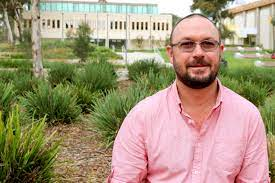Metro-made curriculum misses the mark for rural students
Luke Williams
13 June 2023, 9:20 PM
 "Biased and limited" curriculum blamed for rural students' poor HSC performance
"Biased and limited" curriculum blamed for rural students' poor HSC performanceA new study has shed light on why non-rural and remote students tend to do better than rural and remote students at school.
The study of NSW year 12 students by researchers at the University of Canberra said that policy-makers often misunderstood the problem as a socio-economic inequality issue.
"Socio-economic disadvantage is commonly used to explain lower average student achievement in rural locations. Thus, policies are often directed towards reducing disadvantage associated with socioeconomic status, and rurality is overlooked," The spatial implications of academic achievement in Year 12: Rethinking Discourses of Disadvantage in rural locations article published in the Australian Education Journal said.

The authors studied results from more than 73,000 students and 772 high schools in NSW in 2017. The study included all high schools, government (selective and not selective), Catholic, and other independent schools, using data from the NSW Education Standards Authority.
It found that once they accounted for socio-economic status (SES) rural students still achieved lower results than non-rural students in HSC English and maths.
"Put another way, students attending schools in rural locations, regardless of their parents' SES levels, the average SES of their peers at school, their prior achievement in NAPLAN and school sector, achieve at lower levels than their non-rural counterparts," Lead researcher Philip Roberts Associate Professor in Curriculum Inquiry/Rural Education at the University of Canberra said.
"In Mathematics, the difference in average marks was approximately 6% and approximately 3% for Advanced and Standard English".
These findings follow some facts already known about rural students' performances - they tend to achieve lower NAPLAN scores and in the 2018 PISA test, Australian students outside cities performed at lower levels in reading literacy, scientific literacy, and mathematical literacy.
The authors concluded in their article, "Limitations on curriculum access, access to curriculum enrichment activities, professional staff learning, teachers teaching out-of-field and the overall provision of subject experts… undoubtedly play a role in these findings".

Philip Roberts. Image: University of Canberra.
Roberts said that another issue is that "Rural students also have different everyday experiences from city kids," and "this is often overlooked in the school curriculum, especially in the HSC, where all students do the same content and exams."
Roberts said the same could be said of the NAPLAN test.
"This is because familiarity with the examples used in questions clouds a student's ability to demonstrate the skill being tested and for example, having to write about a beach when you have never been to one.
"This one-size-fits-all approach ignores the fact that rural students have different experiences from urban children, and often their teachers," he argued.
At the moment, the Federal Government is developing the National Schools Reform, which will start in January 2025.
"Firstly, it needs to focus on achieving equity in access to senior secondary subjects for rural students. Secondly, it needs to develop a program to help teachers make the curriculum more meaningful and introduce fairer means of assessment," Roberts said.



